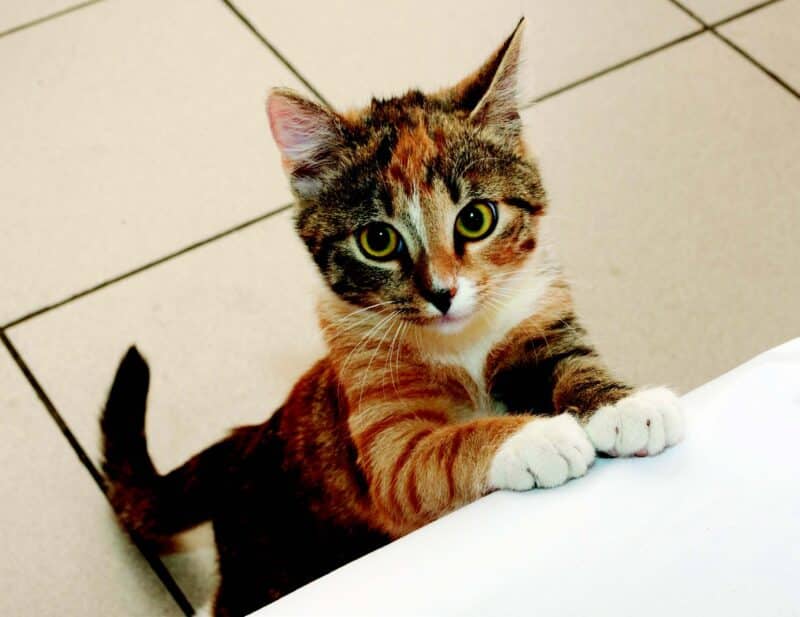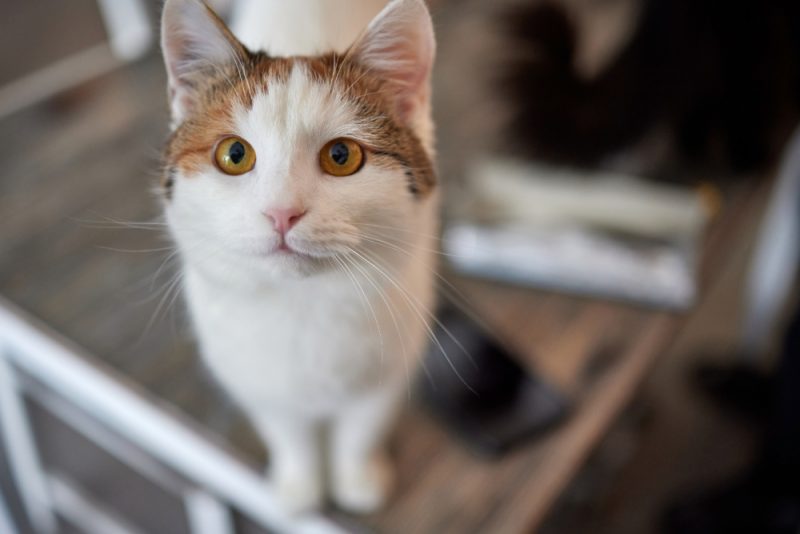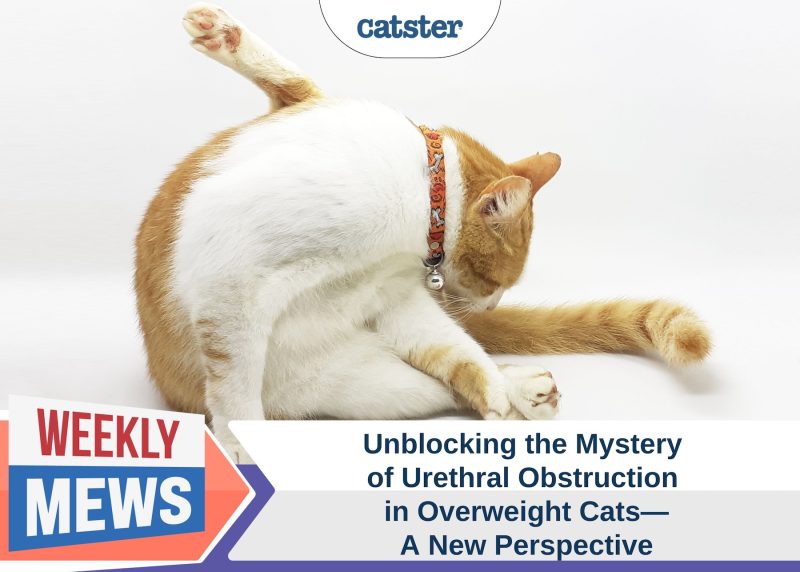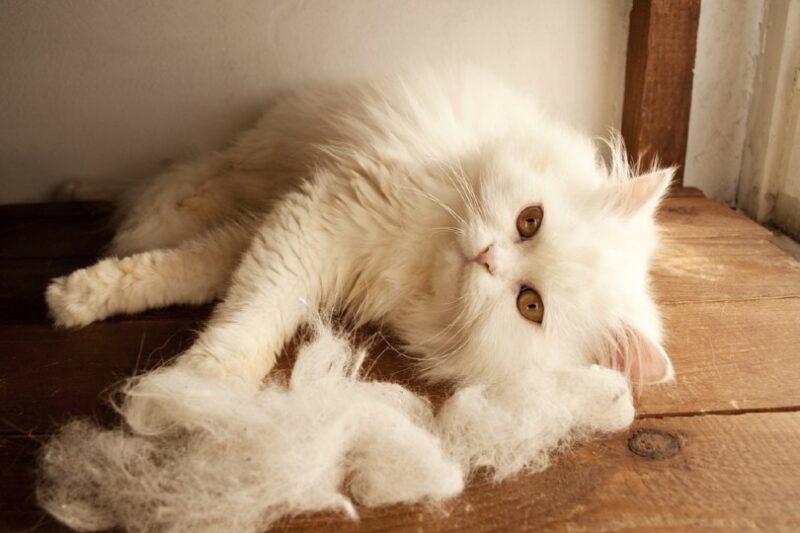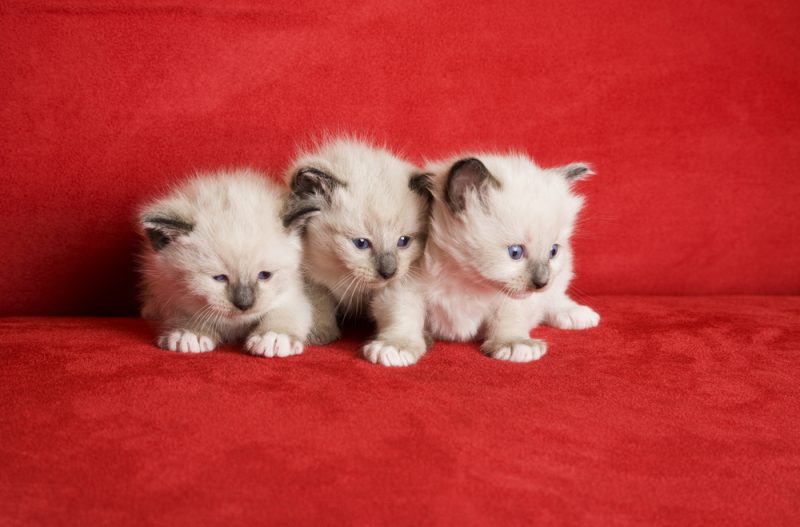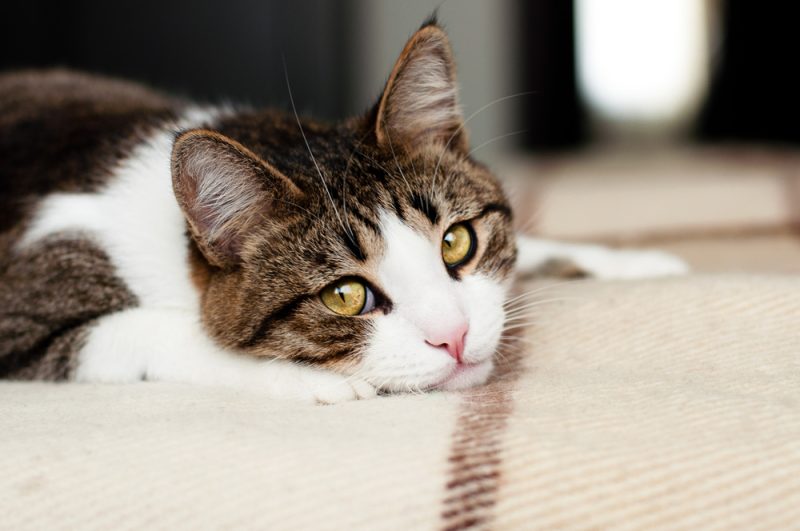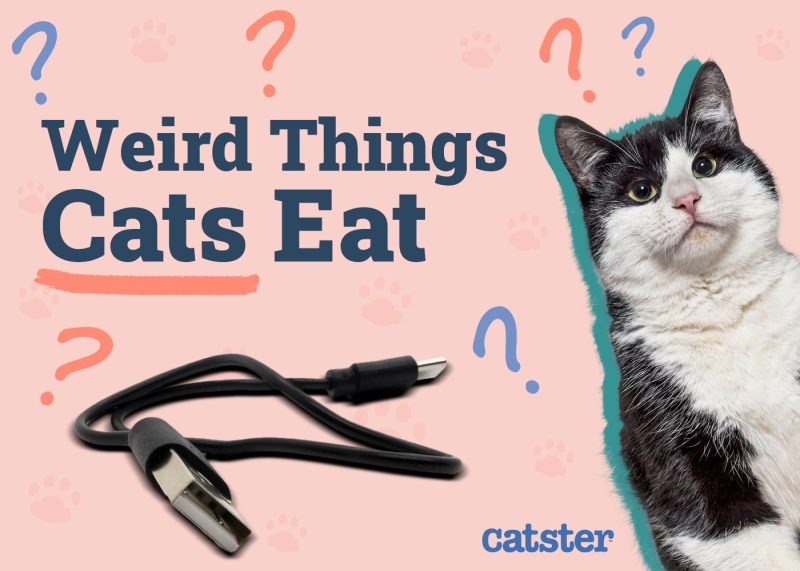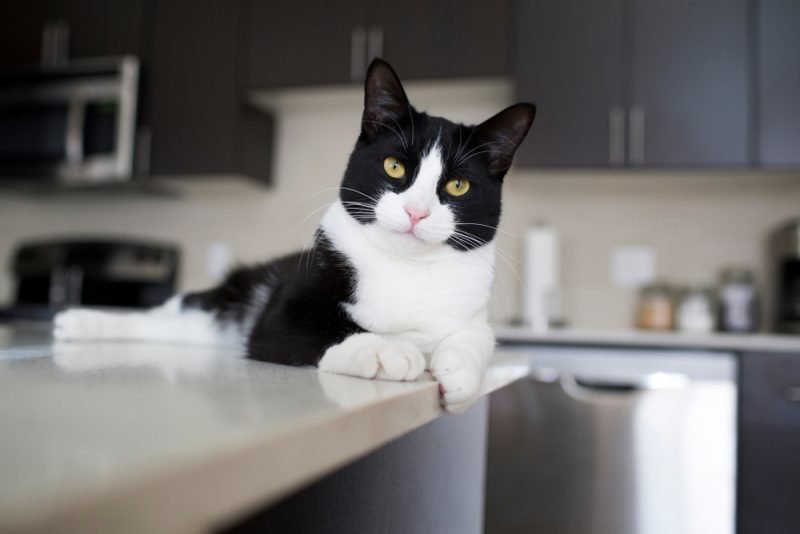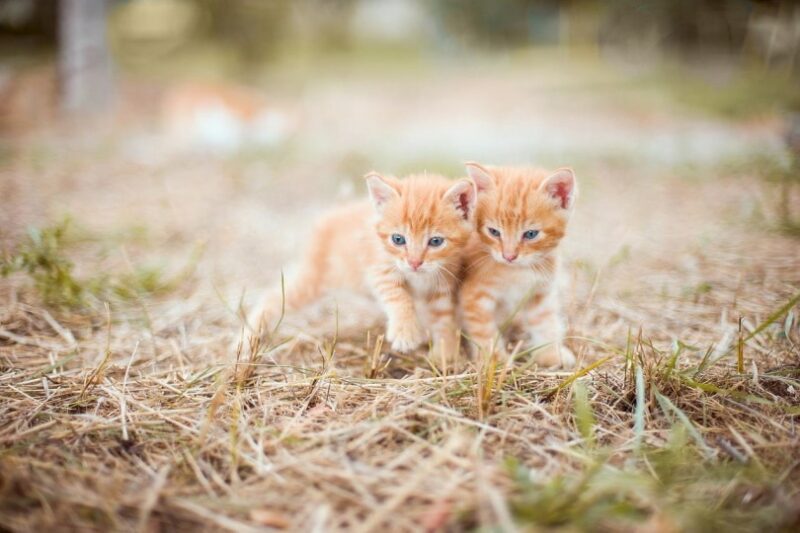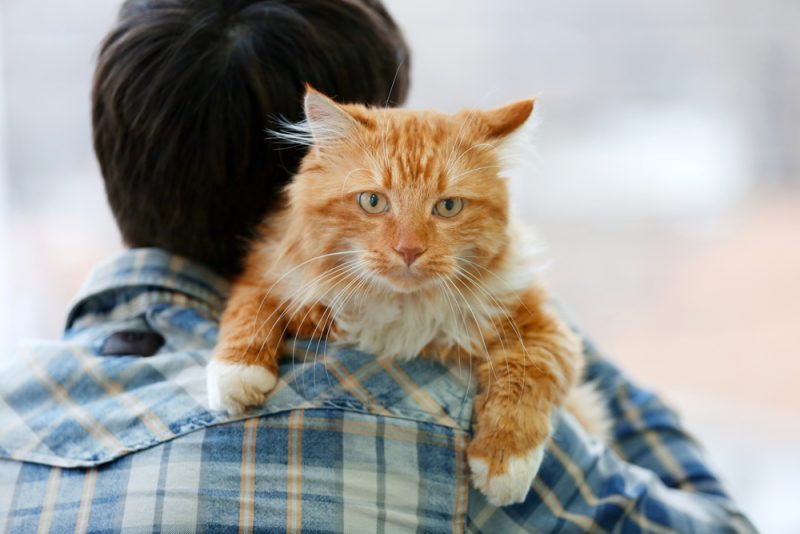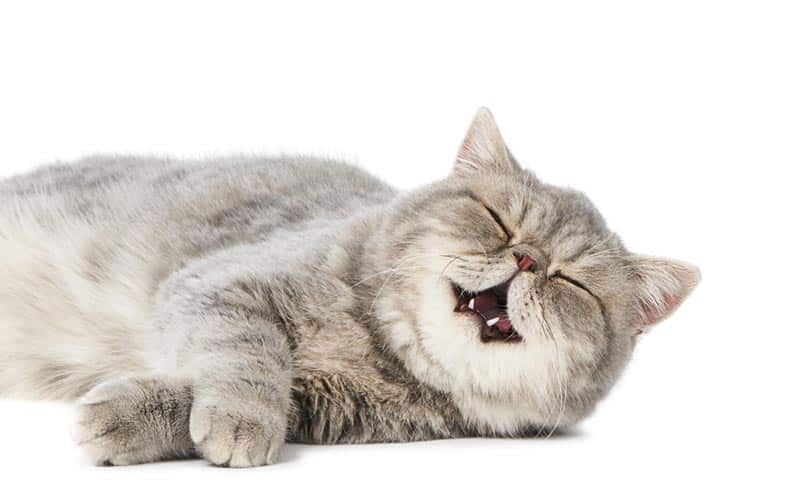Shadow was a young adult cat when she was rescued by her human, Nikki, from a trailer park where stray and feral cats gathered. Since kittenhood, Shadow lived in the park, scrounging for scraps from dumpsters and begging residents for food.
Once she was brought inside, Shadow had all the food she wanted, but she remained food-obsessed due to her previous lack of resources. One time, as Nikki was eating chicken, Shadow literally took the chicken out of Nikki’s mouth!
Six-month-old Deckster was found on my porch a few months ago, and he did not look as if he missed any meals. What did become apparent was his lack of indoor social skills, including the fact that it’s downright rude to step onto his human’s dinner plate to sneak a taste.

How to Break the Begging Pattern
Non-medically related food obsession in cats is often caused by an experience with limited food sources while living outside or a lack of social training. But this isn’t the only reason some cats beg. No matter the reason, food obsession and begging for and/or stealing food can be stopped by following these simple rules.
1. Clear your counter
Any food left out on the counter is fair game, and you may find a cat has taken a bite out of it. I have a friend who made a batch of muffins, left them on the counter to cool and later found a bite mark on each and every muffin.
2. Feed the cats first
Feed your cats just before you sit down to eat. Even if it’s just a few treats, giving them something to eat should distract them from your dinner plate. If they are busy with their own goodies, they’ll be less interested in what you have.
3. Refrain from plate feeding
Speaking of what’s on your plate, feeding your cats from your dinner plate is a recipe for disaster. Cats will keep begging if fed from your plate, because a payoff was received in a yummy treat. The begging will be much harder to control once your cats get you into this bad habit.
4. Ignore the behavior
For relentless cats who keep trying to eat your food, gently put them down on the floor without making eye contact or even saying a word. You may have to repeat this step many times in a row as they pop back up like a jack-in-the-box, but eventually no payoff equals no begging. Cats don’t repeat behaviors for which there is no reward.
5. Put cats in another room
When all else fails, put your cats in another room at your mealtime. Give them a few treats and some self-play toys, and let them be out of sight during your mealtimes. Then, start counter-conditioning to take the allure away from your dinner plate.
6. Counterconditioning and enrichment opportunities
Break your cat’s begging habit by changing the associations they have with your food-related routines. For instance, if your cat starts begging whenever you walk to the kitchen, break the pattern by walking to the kitchen, opening a cabinet, and then walking back out without taking or offering any food. Over time, your cat will stop associating your movements with feeding and lose interest in begging. To keep your cat engaged and satisfied, offer them their own snack in a snuffle mat. A snuffle mat encourages natural foraging behavior and provides a fun, enriching activity. Fill it with a few of their favorite treats or kibble, and they’ll happily stay entertained while you enjoy your own snacks.
If you are concerned or have questions about your cat’s health, you can also speak to a vet from the comfort of your own home to help make a plan. They can determine when an in-clinic vet visit should be made.
If you need to speak with a vet but can't get to one, head over to PangoVet. It's an online service where you can talk to a vet online and get the advice you need for your pet — all at an affordable price!

Banish boredom
Anxiety and boredom may also cause a cat to become food-obsessed. Give your cat both playtime and snuggle time every day. Providing self-play toys, cat trees, window perches, and other interesting things to do whenever they are home alone will help alleviate boredom and discourage food obsession.
Follow these steps, and your mealtimes will become peaceful instead of a battleground with your feline family members.
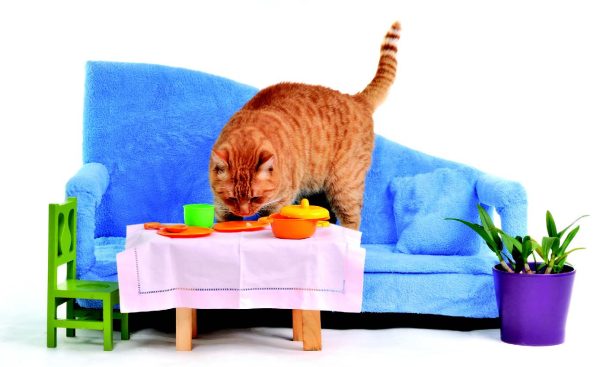
Rule out medical conditions
If your cat seems unnaturally hungry all the time, a visit with a veterinarian is in order, especially if the cat is losing weight. The following conditions can cause cats to act constantly ravenous:
- Diabetes
- Thyroid disease
- Parasites
Conditions like pica and psychogenic eating disorders might trigger aggression around food, in both humans and other cats. Only a veterinarian can diagnose and treat these diseases.
See also:
